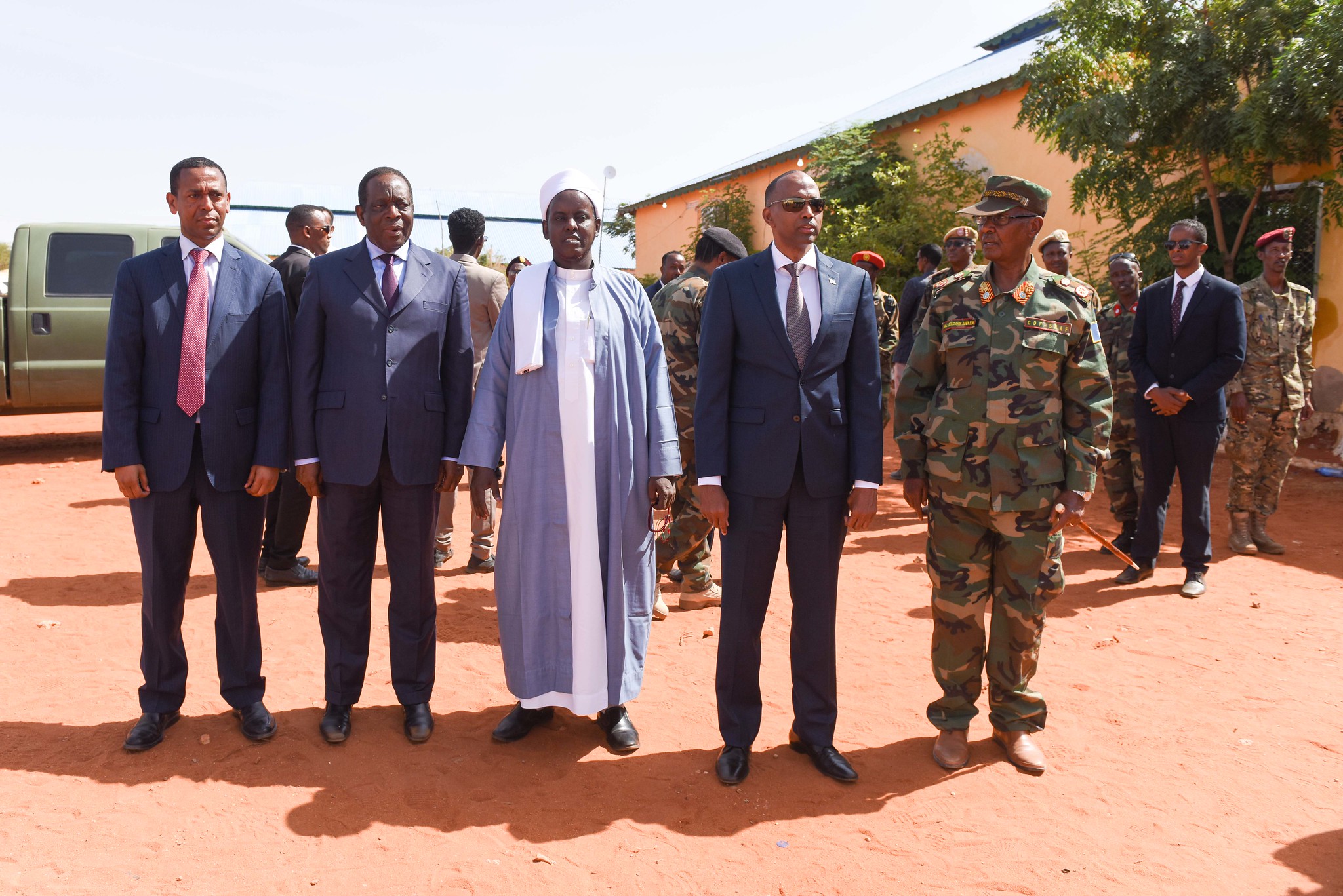ANALYSIS: What impact will push against Alhu Sunna have on Central Somalia?

By T. Roble
Government forces advanced this week in Galmudug wresting control of areas previously held by Ahlu Sunna Waljama’a among them Mataban and Guriel. Reports also indicate the troops were closing in on Dhusamareb by Saturday evening.
The capture of these areas follow what appears to be a collapse of a pact between the Federal Government and Ahlu Sunna mid this year which saw the start of integration of the latter’s forces into the state security agencies in July.
Ahlu Sunna has, since its founding in 2009 made it mission impossible for Al-Shabaab to make headways into Galmudug and even further north. It has partnered with government forces previously in fending off Al-Shabaab onslaughts in Luuq and Gerbaharey in Gedo region.
But the two sides parted ways in 2015 during the Galmudug State formation process when Ahlus Sunnah boycotted the exercise and went ahead to occupy Dhusamareeb- the designated capital of the nascent state. An IGAD brokered deal in late 2017 saw the group subsequently form a unity government with Galmudug administration which has since remained more on paper than reality.
IMPLICATIONS
But what does the Federal Government’s all-out war against Ahlu Sunna mean for the stabilisation process in one of Somalia’s complex theatres? Hussein Sheikh Ali the founder of Mogadishu based security think tank Hiraal Institute warns the gains are short term and could herald further instability in the region.
“The implications of these developments can be looked at from three angles. One is the state-building and stability of Galmudug state, two is security in the central regions and third is the Al-Shabaab factor,” Ali told Goobjoog News.
RELATED: Ahlu Sunnah to head cabinet in brokered deal with Galmudug state
Galmudug state and Alhusuna sign pact on expanded parliament
According to Ali, the government’s move is a zero-sum game. The state-building process in Galmudug will suffer a legitimacy crisis and eventually will not take off, Ali says. For Ali, Alhu Sunna is a key stakeholder which cannot be wished away.
The move by the government could also portend insecurity uptick in Galmudug, says Ali.
“Galmudug has been relatively stable save for the clan clashes thanks to a sense of stability instilled by Ahlu Sunna. What we are likely to see are more insecurity and accelerated clan conflict. This is opening Pandora’s box.”
Noting that the Federal Government’s objective is motivated by the upcoming elections in Galmudug, Ali warns the aftermath of this will leave Galmudug more polarised but it may not deter Alhu Sunna.
“They (FGS) are motivated by the elections. They have recruited forces purposely for these elections. But after elections, Ahlu Sunna will still be there for the long-term objective.
AL-SHABAAB ENTRY
But perhaps the most impact from the displacement of Ahlu Sunna, Ali says is creation of room for Al-Shabaab. “Ahlu Sunnah is the only entity which can take full credit for stopping Al-Shabaab. Without Ahlu Sunnah, Al-Shabaab would have easily moved far north and even taken over cities such as Berbera and Hargeisa,” said Ali.
According to Ali who previously served as National Security advisor to both Presidents Mohamed Farmaajo and Hassan Sheikh Mohamud, Ahlu Sunnah has been successful in creating a buffer zone in central Somalia and stopping Al-Shabaab not just from occupying the region but also extending its reach to the north.
Now left for survival, Ali says Ahlu Sunna may no longer have the energy to fight Al-Shabaab. “The geography of counter-terrorism in Somalia will shift. Al-Shabaab will easily get territories it never dreamt of months ago.”
What about the government forces? “No government has been able to hold territory and fend of Al-Shabaab but Alhu Sunna has done so decisively twice,” notes Ali.